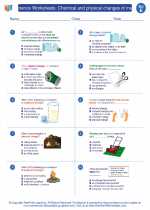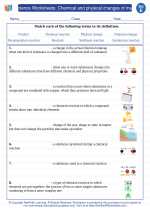Archaeology
Archaeology is the study of human history and prehistory through the excavation and analysis of artifacts and other physical remains. It provides us with valuable insights into the way ancient societies lived, their cultures, technologies, and interactions.
Key Concepts
- Artifacts: Objects made or used by humans, such as tools, pottery, and jewelry, which are studied to understand past cultures.
- Excavation: The careful digging and recording of archaeological sites to uncover and retrieve artifacts and other evidence.
- Stratigraphy: The study of rock layers and the sequence of events they reflect, used to date and interpret archaeological finds.
- Carbon Dating: A method used to determine the age of organic materials based on their content of carbon-14.
- Cultural Anthropology: The study of human cultures and societies, often integrated with archaeological research to understand past social behaviors and practices.
Skills and Methods
Archaeologists use a range of scientific and analytical methods to interpret and contextualize their findings. Some key skills and methods include:
- Fieldwork: Conducting surveys and excavations at archaeological sites, often in remote or challenging environments.
- Laboratory Analysis: Using techniques such as carbon dating, DNA analysis, and material studies to examine and date artifacts.
- Mapping and Surveying: Using geographic information systems (GIS) and other tools to record and analyze the spatial distribution of archaeological features.
- Interpretation: Using historical and cultural knowledge to interpret the significance of artifacts and sites within their broader context.
Importance
Studying archaeology is important for several reasons:
- It helps us understand the development of human societies and technologies over time.
- It contributes to our knowledge of ancient cultures and traditions, helping to preserve and celebrate human diversity.
- It provides valuable insights into how past societies adapted to environmental and social challenges, which can inform contemporary issues.
- It supports the conservation and management of archaeological sites and cultural heritage.
Study Tips
To excel in archaeology, consider the following study tips:
- Develop skills in careful observation and documentation, as attention to detail is crucial in archaeological work.
- Study a range of scientific disciplines, including geology, chemistry, and biology, to understand the processes and methods used in archaeological analysis.
- Read widely on historical and cultural topics to build a strong foundation of knowledge that can be applied to archaeological interpretation.
- Seek opportunities for hands-on experience through volunteer work or internships with archaeological organizations or research projects.
◂Science Worksheets and Study Guides Fifth Grade. Science Worksheets: Chemical and physical changes of matter
Study Guide Chemical and physical changes of matter
Chemical and physical changes of matter  Worksheet/Answer key
Worksheet/Answer key Chemical and physical changes of matter
Chemical and physical changes of matter  Worksheet/Answer key
Worksheet/Answer key Chemical and physical changes of matter
Chemical and physical changes of matter  Worksheet/Answer key
Worksheet/Answer key Chemical and physical changes of matter
Chemical and physical changes of matter  Vocabulary/Answer key
Vocabulary/Answer key Chemical and physical changes of matter
Chemical and physical changes of matter 

 Worksheet/Answer key
Worksheet/Answer key
 Worksheet/Answer key
Worksheet/Answer key
 Worksheet/Answer key
Worksheet/Answer key
 Vocabulary/Answer key
Vocabulary/Answer key

The resources above cover the following skills:
PHYSICAL SCIENCE (NGSS)
Matter and Its Interactions
Students who demonstrate understanding can:
Make observations and measurements to identify materials based on their properties.
Conduct an investigation to determine whether the mixing of two or more substances results in new substances.